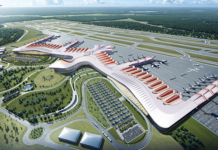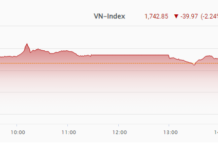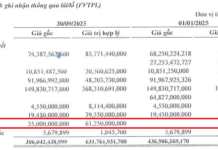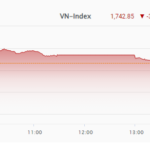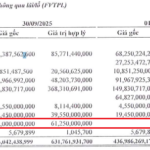Saving for 50–80 years to buy a house
According to a recent announcement by the Ministry of Construction, there has been an increase in apartment transaction prices in the second quarter of 2024. Based on surveys and reports from several provinces and major cities such as Hanoi and Ho Chi Minh City, apartment prices have risen by an average of 5% to 6.5% in the second quarter and 25% annually, depending on the area and location. This increase is not limited to new projects but also includes many old apartments that have been in use for many years.
With apartment prices ranging from 50 to 80 million VND per square meter, there is a lack of affordable housing options in the market. This price range creates a significant financial burden for middle and low-income earners, making the dream of owning a home a challenging and daunting task.
In large cities such as Hanoi and Ho Chi Minh City, the average income of workers ranges from 10 to 15 million VND per month. While this income may be higher in specific industries or higher positions, for most manual laborers, this is the standard range.
Real estate prices in Hanoi, Ho Chi Minh City, and suburban areas currently range from 40 to 80 million VND per square meter, while in the city center, it can exceed 100 million VND per square meter. A typical apartment ranging from 70 to 80 square meters can cost between 3 to 6 billion VND.
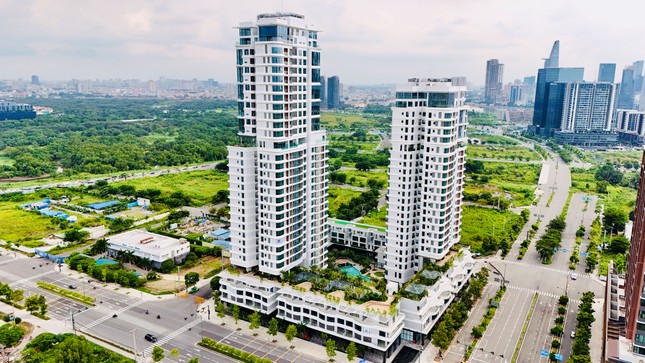
Homeownership in the city is becoming an increasingly distant dream for many.
Assuming a worker saves 30% of their monthly income (approximately 3 to 4.5 million VND), they can save around 36 to 54 million VND in a year. If they wish to purchase a 3-billion-VND house, they would need to save continuously for 55 to 83 years to reach this amount (not accounting for living expenses and inflation).
However, most workers cannot save the entire amount required to buy a house. Many opt for bank loans with repayment periods ranging from 15 to 25 years, but this still imposes a significant financial burden on the buyer.
Therefore, the ideal house price should be equivalent to approximately 6–10 years of average income, making it more accessible to young people.
The dream of homeownership is becoming more elusive
For many, the dream of owning a home in the city is gradually becoming an unattainable reality. They choose to rent or buy land in their hometowns instead of striving to own a house.
Many young people realize that returning to their hometowns to buy land not only reduces financial pressure but also opens up new investment opportunities at a lower cost than living in the city.
Mr. Nguyen Huu Hau, 35, from Thai Binh, shared that his income is around 25 million VND, and his family of four still lives in a rented house in the city. Behind this salary is a struggle, as when he first started working, his income was only 5 million VND. Every month, after paying rent, child support, utilities, sending money back home, and other living expenses, there was hardly anything left. The family’s savings depend on his wife’s income of 10 million VND.
I feel stuck with this 25 million VND salary because it’s neither too much nor too little. This income supports my family’s expenses, and I don’t dare to look for another job or seek other opportunities. It’s challenging to find a job nowadays, and if I don’t fit in with the new place, my family’s life will become more difficult. But as the breadwinner, this income is not enough to buy a house, a car, or provide a more comfortable life for my wife and children.
City life is expensive, and I’m considering moving back to my hometown to give my children a complete childhood, but I don’t know what kind of job I can find there.
Meanwhile, my hometown is also transforming from a village to a town, and with upcoming plans to become a town, land prices are soaring. I don’t know if I should leave the city and return to my hometown, as the dream of owning a house seems more and more distant.
The Capital City Adjusts Flooding Issues into Land Price Determinants
The Hanoi government has outlined eight specific factors that influence land prices, including water and electricity supply and their impact on drainage. This takes into account the stability of water and electricity provision and the area’s propensity for flooding during heavy rainfall.
“Act Fast! Apartment on the Market for $3.9 Million – Brokers Urge Quick Sale as Price May Spike to $4.1 Million Tomorrow”
In today’s turbulent property market, it is essential for prospective homebuyers to remain vigilant and informed. With prices fluctuating, it is crucial to research the history of price increases to avoid falling prey to inflated valuations. Being aware of the market trends and price history will empower you to make informed decisions and navigate the market with confidence.













